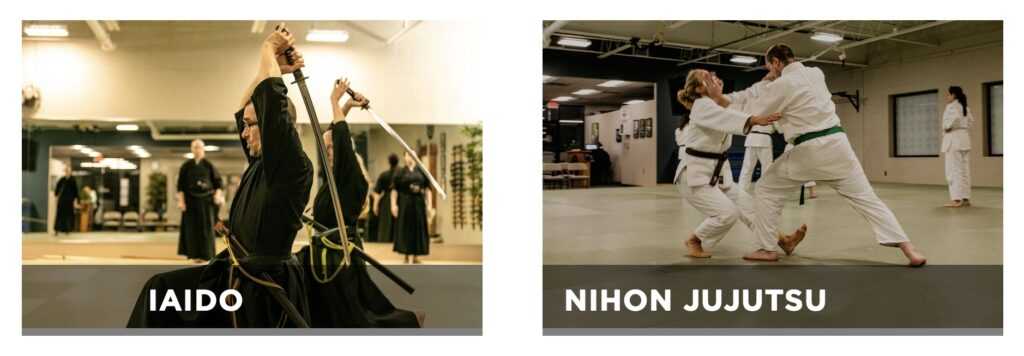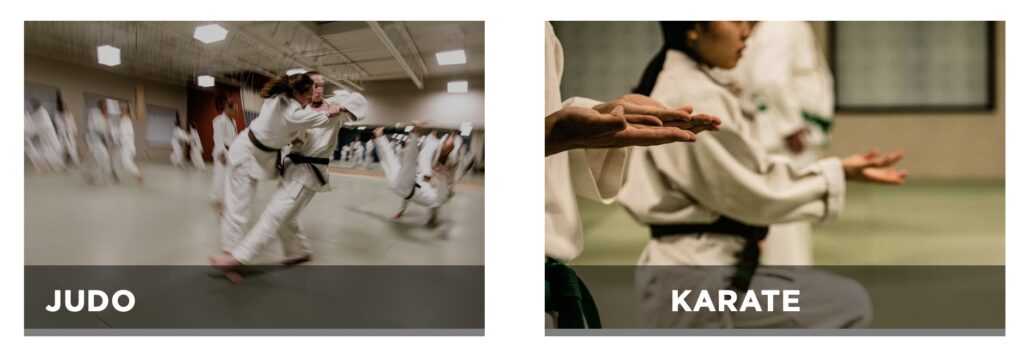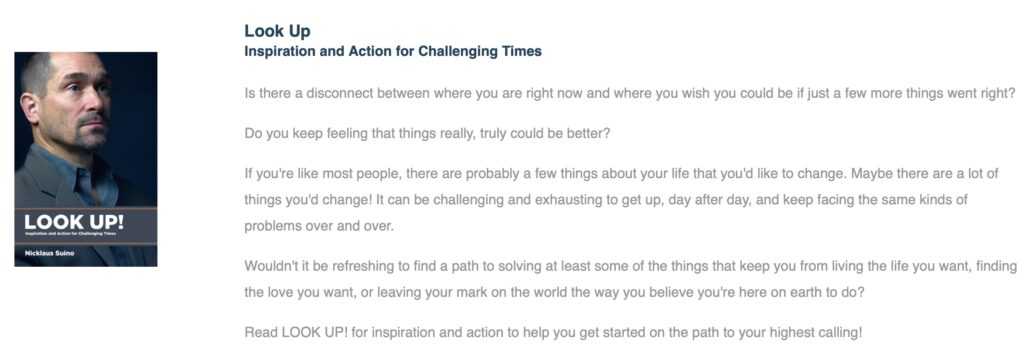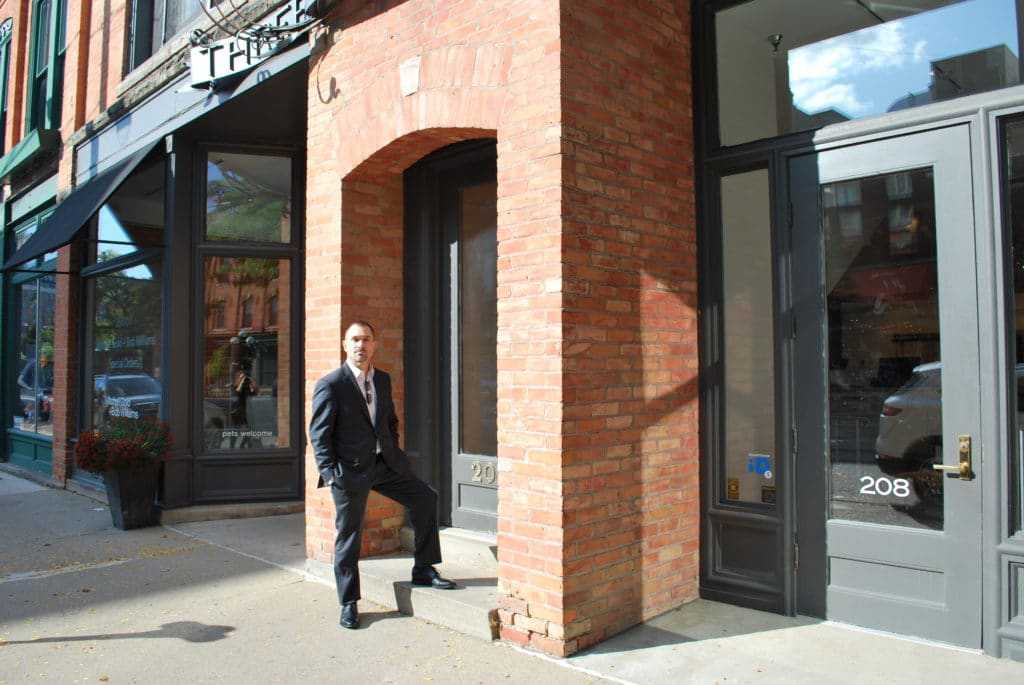Sensei Suino of JMAC in Ann Arbor
The tech industry is an energizing space to work, but even the most put-upon engineer needs to rest. Everyone is feeling pretty worn out at this stage of the pandemic, as we hit one-year milestones of shutdowns. How can busy professionals manage the fatigue that comes from longterm crisis?
In Ann Arbor, we are profoundly lucky to have a whole host of highly professional martial arts and meditation instructors to call on for just such a question. We thought we'd check in with Sensei Nicklaus Suino -- a Japanese martial arts master, business marketing professional, and extremely nice guy for someone who could kill you with one strike of a Samurai sword -- for a continuation of a series we've run on self-care strategies for busy professionals. At a time like this, we want to offer whatever resources we can to help tech talent, business founders, and support professionals create new healthy routines to help them recover from the exhaustion of the last year.
Sensei Suino is the Japanese Martial Arts Center's Director of Training in Ann Arbor. He has worked in law and business marketing, and has studied the martial arts of karate, judo, jujitsu, iaido (Samurai swordsmanship) and kyudo (archery). Suino is one of the foremost martial arts instructors in the U.S., and has published widely on Japanese martial arts as well as coaching people in the wisdom the Japanese martial arts can bring to everyday living. Suino's personal mission is to master the most profound aspects of Japanese heritage martial arts. He believes that proper practice of Japanese martial arts can have a profound positive effect on people's lives. Since 2009, he has been consulting for businesses and individuals who want to improve their effectiveness using the physical, mental, and intangible principles of mastery. Suino is President and Managing Director of the Shudokan Martial Arts Association and a Michigan Regional Director for the US branch of the International Martial Arts Federation (IMAF-Americas). He was director of ITAMA Dojo in East Lansing, Michigan, from 1993 until 2003. In 2006, he returned to Ann Arbor to open the Japanese Martial Arts Center, offering classes in jujitsu, judo, iaido, and karate for kids. You can learn more about his rather impressive bio here.
Sensei Suino, pictured left leading an iaido class, trains martial artists and lay people alike in wisdom from the Japanese martial arts that can help with issues many people are facing at the tail end of the COVID-19 pandemic, such as burnout, exhaustion, and difficulty concentrating.
Does Anyone Have Time for Martial Arts Right Now?
How can martial arts help with pandemic fatigue when you already have too much on your plate? First off, we need to clarify that the martial arts teach a lot more than physical fitness. Depending on the martial art, you will study quite a bit of mindfulness practice, instruction on relaxation and groundedness in tense situations, and personal self-care. You might benefit quite a bit just from starting a meditation practice rooted in one of these arts. You don't necessarily need to get into a martial art physically to benefit from some of these meditative practices, though it does help to have the full training physically and mentally. Also, no one knows discipline, the freeing joy of movement in fitness, and how to work through difficult scenarios in a mindful way like a martial arts master. Sensei Suino sat down with us to talk about how martial arts training and its associated practices has helped him through the pandemic, and might help others. We hope that with this interview, you might glean a few ideas of how you could boost your own self-care routine at home or through a new holistic mind-body fitness routine to get through the next year as the pandemic hopefully winds down. We know from hard-won experience that the exhaustion and real effort to clean up after a crisis can hit long after the initial trigger has ended. We hope this gives you a few more resources to support yourself through what has been a historically hard time for professionals balancing work, family, and a seemingly unending stream of challenges on the professional and personal front.
How Can Wisdom from Martial Arts Help Busy Professionals?
Martial arts seem to many people like intimidating and complex art forms, and they can be. But there is something to be said for the synergy created by starting a fitness routine that is designed to make the most of your energy. That can help business owners and busy professionals manage their time, their energy, and their focus. "Martial arts helped me as a business owner," Suino tells Cronicle. "Like a lot of people, the pandemic forced me to be creative. Martial arts kept me from stagnating and forced me to go do something." There is a benefit that many people have reported to having some structure to their days during the pandemic. If you don't have that structure from work, or you want something other than work to help you cope, martial arts are one of the most structured forms of disciplined fitness training and self-care available.
Many people are reporting burnout and Zoom fatigue, at the very least, after a year of isolation and constant demands. We wondered what Suino's students report on how martial arts has helped them this year. Suino says it is split down the middle between students who kept practicing in person as much as possible, and those who struggled with the remote learning and fell off. "We're back to in person with a Zoom supplement," Suino explains. "It's better than nothing, and works for students who don't feel safe in person yet or have special health concerns. We're allowed to train in person masked with limited contact. It's slowly helping people get back."
People also respond differently to different forms of training, Suino says, a reflection of how people have had a varied response to working remotely. "Some people are more tactile and don't relate to purely academic stuff, so half the students actually benefited quite a bit when we implemented a six-foot distant training. A standard martial arts belt is six feet long, so I have students stand at opposite ends holding a belt, and just having that feedback of another human body in training makes a difference to students." This might be something to consider as you create a post-pandemic routine for yourself. Think about how you respond to academic learning versus tactile training to find the fitness or self-care routine, and the level of social interaction, that's right for you.
Martial arts practice helps the body recover from times of stress, but also creates a routine of training that benefits the body and the mind.
How Does A Martial Arts Master Handle a Pandemic?
For a martial arts master, has this year been challenging as well? Suino says yes, and says he has benefited from the need to get into the dojo to teach and train every day. "People aren't feeling the love right now," he says. "The spark isn't there. There's a lot of upheaval for all of us. I don't have the same level of joy as pre-COVID either, but I have a solution. I know that at the end of a morning I'm going to feel amazing. While I'm there I can forget my concerns, and feel accomplished."
This brought up an interesting idea for us. During the pandemic, many people reported feeling isolated, but others missed certain aspects of their routine. If you are looking for support with exhaustion, don't just select a martial art or a meditation class for self-care and fitness based on what you think is ideal: pick one that nurtures what you've been missing. Dojos are collegiate places, generally, and more like a family than a gym. But do you miss the hands-on training of a fitness regimen, the social contact, or the opportunity to get back in shape? What's right for you may not be the same as everybody else, and if we've learned one thing from the pandemic, it's that actively restorative rest and nurturing self-care practices that really energize you are very different from simple rest and doing nothing. Pay attention to what energizes you, and you'll find the right routine in no time.
What If You're Out of Shape?
What about de-conditioning? A lot of people who normally work out have had their lifestyles upended and are out of shape. "My best advice is just start," Suino says. "We developed this 30-minute bootcamp at the dojo. We would do Zoom body weight exercises. There is no substitute for push hands (a martial arts sparring practice) or body weight in training, but anything is better than nothing." Suino also says that when students start, he takes training at their pace and encourages them that if they stick with it, two months later they're going to feel like they're in a completely different place. Be careful to ease into a workout routine, however. Many people need to work their way back into training to avoid injury after an unprecedented year of upheaval in their normal fitness routines.
How Do You Know Which Martial Art Is Right For You?
In the midst of all the juggling, how can someone even evaluate which martial art might suit them to get back in shape and provide that structure and mindfulness and body awareness that might help them cope during a pandemic? Suino says that again it comes back to what energizes you. "Half of people see something like judo and get jazzed by it," Suino says. "That gut level connection can carry you through. The other half are not sure and have to have conversations with someone who knows more about it."
Sensei Suino has written a number of books on Japanese swordsmanship and coaching habits that improve people's quality of life through challenging times.
Can People Start Martial Arts As Adults?
"The martial arts are intimidating," Suino admits. "[To work,] it's got to be systematic and safe. In our dojo, people come in and watch a class. If that's appealing to them, they take two private lessons that match their pace. Then they can choose a two month trial membership. I tell them just be head down, do the work, and do your best. I promise it's going to look better and better."
Honestly from our own study of martial arts that sounds a bit unnecessarily grim. Martial arts classes are often a gathering place, even on Zoom, where students and teachers really enjoy getting together. It is tougher to train without other human beings around, but the meditative practices and the routine alone offer a signal to the brain that it's time to relax, work out, and connect and learn with other humans -- all elements that have been missing from our lives in a pandemic. And when you study the "internal" martial arts that emphasize meditative practices, you often notice you're out of alignment physically or mentally just by becoming present at the beginning of your practice time. It can help immensely to have a practice like this that reminds you to check in with your body and fix what is out of alignment to avoid bigger problems that build up over time when we haven't been exercising or meditating.
Sensei Suino says that students have actually benefited in one way from having to study remotely most of the year. "The folks who are able to do distance learning have done well because we slow things down and explain the academics and theory," he says. "If it's judo, 100% of their training has been holding on to another human.... [During the pandemic,] people slowed down and learned more thoroughly. It's moved everybody toward the finesse end of the spectrum. Now we'll always keep the distance belt training."
Sensei Suino at our initial interview with him on Cronicle regarding business marketing in 2019.
Is It Worth The Effort When You Can't Train Together?
"We've had to face the challenge of not being in the same room," Suino says. "What I noticed was that folks who are able to train that way got the training, but a huge part of it was social contact. Our folks have bonded. The training led to better relationships -- we have spent more time supporting each other. Another set of people tried Zoom classes and either went on to something else easier to do with distancing like golfing, but a lot of these folks tell me they feel isolated. The folks who have withdrawn have paid a price."
"It's important to have a body activity no matter who you are," Suino emphasizes. "Many people have hobbies that aren't movement hobbies. There's a little more joy in life when you have movement. There are some kinds of pain not to be run away from. Benefits on the other side translate to better choices for the long term. For example, you start eating for how you will feel tomorrow. Folks in the martial arts in my opinion are living a better version of life."
We're pre-sold and have already drunk the Kool-Aid on the benefits of martial arts, and that's why we wanted to bring you a brief shift from the usual tech news to revisit the idea of self-care for founders and tech talent. Training in martial arts is challenging right now, just like everything else. We are personally doing this remotely in another dojo that will slowly bring back hybrid classes in the spring, virus numbers allowing. It has cost something in isolation and interrupted training and fitness, it's true. Whatever hobby or fitness or self-care routine you choose, we hope that you find something that holds you together through the next months and helps you rediscover joy in life. Every crisis has its end. We hope that you find your balance in the midst of all this to avoid burnout and recover from an unparalleled year of upheaval. If you would like to learn more about Sensei Suino's training for professionals in the attitudes and best practices gleaned from the martial arts, you can visit The Permission.





